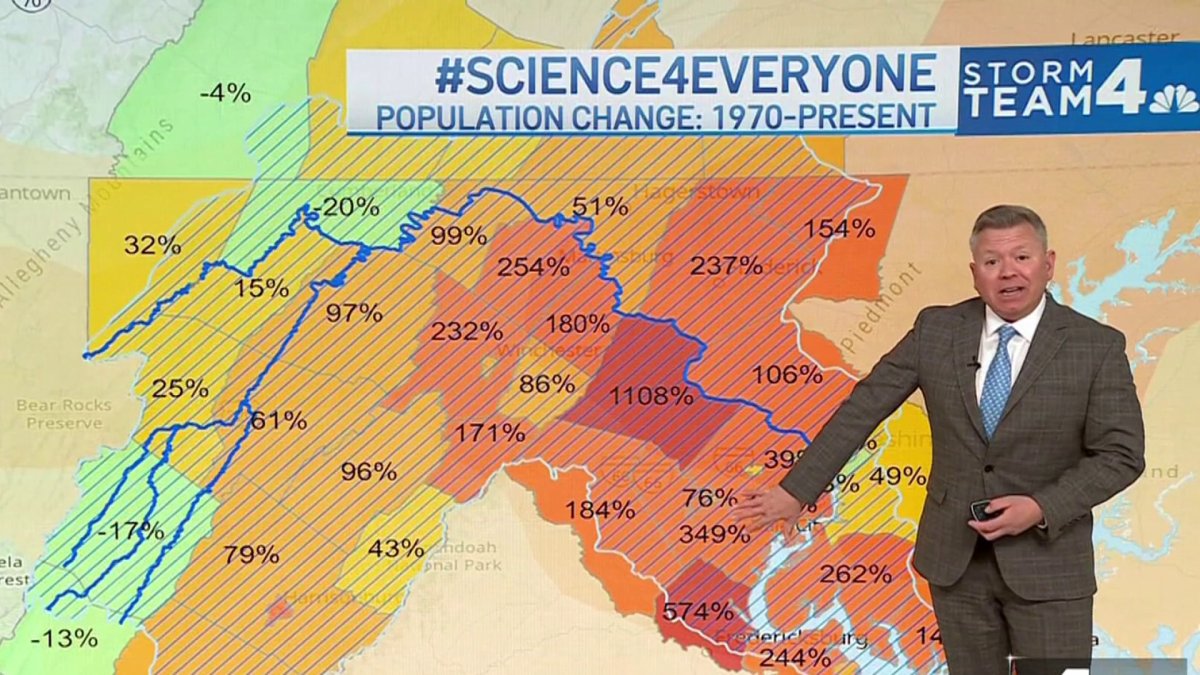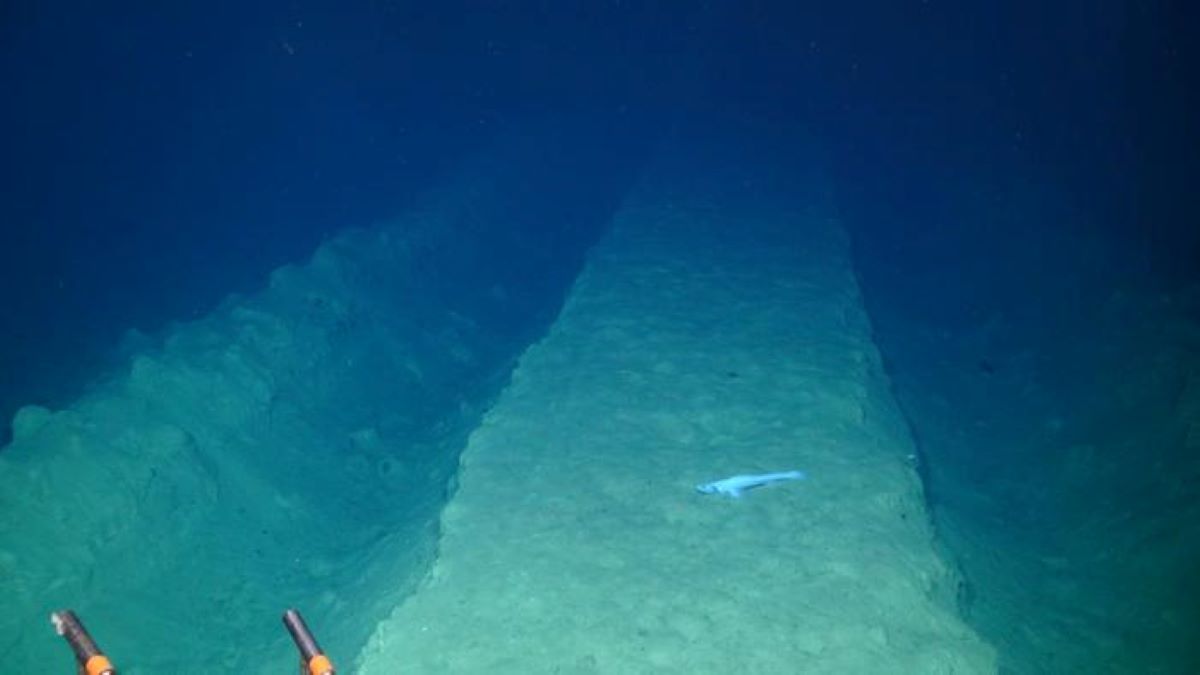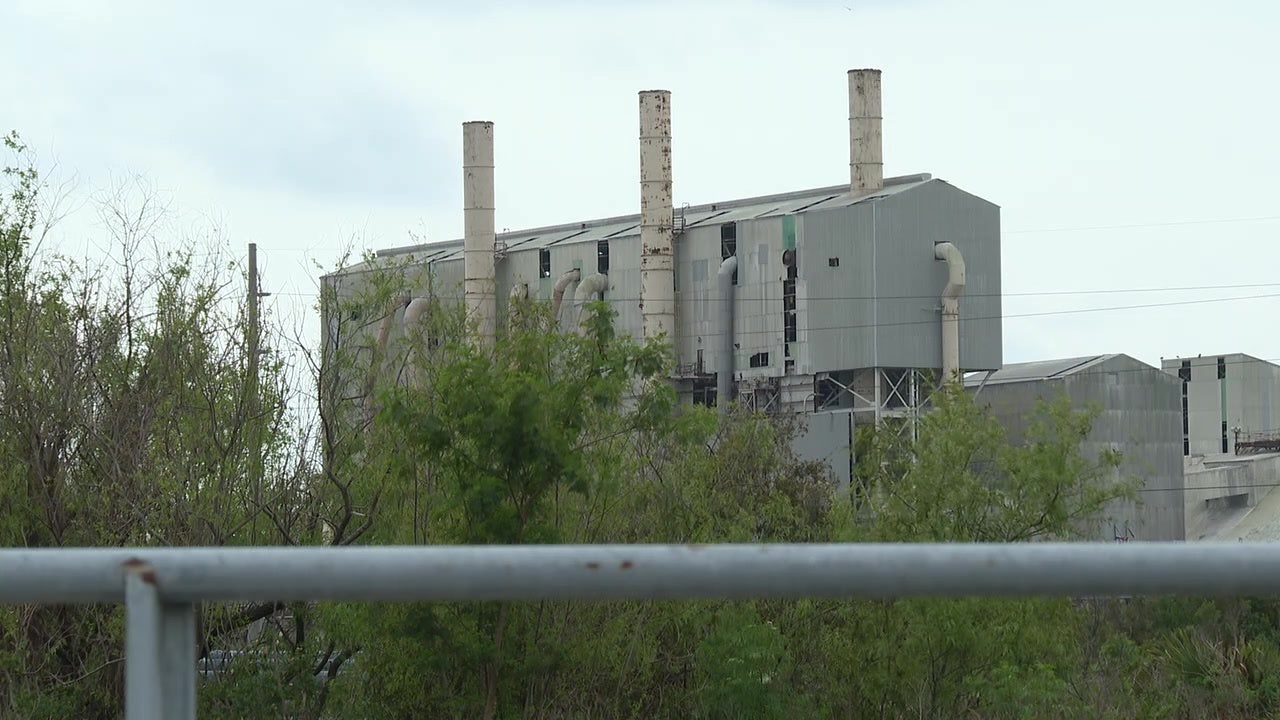Green Leadership: VP Calls for Urgent Environmental Responsibility
Environment
2025-03-30 17:47:00
In a powerful statement addressing global environmental challenges, Vice President Jagdeep Dhankhar emphasized the critical importance of developing and embracing environmental ethics on an international scale. Speaking from New Delhi, Dhankhar highlighted the urgent need for a collective global approach to environmental sustainability and responsible stewardship of our planet's resources. The Vice President's remarks underscore the growing recognition that environmental consciousness is no longer just a choice, but a fundamental necessity for the survival and well-being of future generations. By advocating for a more comprehensive and ethical approach to environmental protection, Dhankhar is calling on nations and individuals alike to reimagine their relationship with the natural world. His message resonates with the increasing global awareness that meaningful environmental change requires a fundamental shift in our collective mindset, moving beyond mere policy and towards a deeper, more holistic understanding of our interconnectedness with the environment. MORE...
Parched Planet: The Hidden Environmental Crisis Unfolding Before Our Eyes
Environment
2025-03-30 17:38:59
As the Washington D.C. metropolitan area has experienced significant population growth since 1970, Storm Team4 Meteorologist Ryan Miller reveals a critical connection between urban expansion and increasingly challenging drought conditions. The dramatic population surge over the past five decades has transformed the landscape, creating more impervious surfaces like concrete and asphalt. These changes dramatically alter natural water absorption patterns, intensifying the region's vulnerability to drought. Miller explains that as more land becomes developed, the ability of soil to retain moisture becomes significantly compromised. Urban growth not only reduces green spaces but also increases water consumption, placing additional stress on local water resources. The combination of reduced natural water retention and heightened water demand creates a perfect storm of environmental challenges that make drought conditions more pronounced and potentially more severe. By understanding the intricate relationship between population growth and environmental changes, residents and policymakers can better prepare for and mitigate the impacts of future drought scenarios in the D.C. area. MORE...
Guardians of the Earth: VP Dhankhar's Urgent Call to Preserve India's Ecological Heritage
Environment
2025-03-30 17:20:00
India's Sustainable Legacy: A Timeless Tradition of Environmental Harmony In a powerful affirmation of India's long-standing commitment to sustainability, Vice President Jagdeep Dhankhar highlighted the nation's profound environmental consciousness that has been deeply woven into its cultural and religious fabric for centuries. Speaking at a recent event, Dhankhar emphasized that sustainability is not a new concept for India, but a way of life that has been practiced and celebrated through generations. The country's traditional practices have inherently embodied principles of ecological balance, resource conservation, and harmonious living with nature long before global environmental movements gained momentum. From ancient agricultural techniques that preserved soil health to religious rituals that revered natural elements, India has consistently demonstrated a holistic approach to environmental stewardship. The Vice President's remarks underscore the indigenous wisdom that has guided Indian communities to live in symbiotic relationship with their natural surroundings. This rich heritage of sustainability serves as a testament to India's timeless understanding that human prosperity is intrinsically linked to environmental preservation, a lesson that remains as relevant today as it was centuries ago. MORE...
Sonic Superiority: Why Women's Ears Outperform Men in Every Sound Landscape
Environment
2025-03-30 14:55:07
A groundbreaking study has revealed fascinating insights into human hearing capabilities, highlighting significant differences between genders and environmental influences. Researchers discovered that women possess remarkably more sensitive hearing compared to men, with the ability to detect subtle sound variations more precisely. The study also uncovered an intriguing connection between hearing acuity and environmental settings. Individuals residing in forest environments demonstrated superior auditory perception compared to their counterparts in urban landscapes or high-altitude regions. This finding suggests that natural surroundings may play a crucial role in enhancing our auditory sensitivity. Scientists attribute these differences to various factors, including biological variations in ear structure and the impact of environmental acoustics. The research provides compelling evidence that our hearing capabilities are not uniform but are influenced by gender and the surrounding environment. These discoveries open new avenues for understanding human sensory perception and could have significant implications for audiology, environmental psychology, and healthcare research. MORE...
Robots Rising: How Humid Factories Are Revolutionizing Industrial Automation by 2030
Environment
2025-03-30 14:50:39
Revolutionizing Industrial Automation: Humid Environment Robots In the challenging world of industrial manufacturing, a groundbreaking innovation has emerged - the humid environment industrial robot. These sophisticated machines are engineered to thrive where traditional robots would falter, conquering high-moisture and wet operational conditions with remarkable resilience. Unlike standard industrial robots, these specialized systems are meticulously crafted with cutting-edge technology that ensures peak performance in challenging environments. Advanced corrosion-resistant materials form the backbone of their design, while precision-engineered sealed components and advanced waterproof coatings provide comprehensive protection against moisture-related damage. The key to their exceptional durability lies in their innovative construction. Every component is carefully selected and treated to withstand extreme humidity levels, preventing potential malfunctions and extending the robot's operational lifespan. From food processing plants to chemical manufacturing facilities, these robust machines are transforming how industries approach automation in challenging environmental conditions. By combining superior engineering with intelligent design, humid environment industrial robots represent a significant leap forward in robotic technology. They offer businesses unprecedented reliability and efficiency, ensuring continuous productivity even in the most demanding operational settings. MORE...
Seafloor Devastation: Scientists Unveil Shocking Ecological Toll of Deep-Sea Mining
Environment
2025-03-30 14:30:00
Deep beneath the ocean's surface lies a hidden treasure trove of minerals that could revolutionize green technology—polymetallic nodules scattered across the seafloor. Mining companies are now eyeing these potato-sized mineral deposits as a potential game-changer for electric vehicle batteries and renewable energy technologies. But a critical question looms: Can these delicate marine ecosystems truly recover from large-scale seabed mining? These mysterious nodules, rich in nickel, cobalt, copper, and manganese, sit atop the ocean floor like geological time capsules. They form over millions of years, growing incredibly slowly in some of the planet's most remote marine environments. While they represent a potentially lucrative resource for emerging green technologies, scientists are raising serious concerns about the long-term environmental impact of extracting these underwater minerals. Researchers are conducting extensive studies to understand how seabed mining might disrupt complex marine ecosystems. The process involves massive machines that would essentially vacuum these nodules from the ocean floor, potentially destroying habitats and disturbing intricate biological communities that have developed over centuries. The sediment plumes created during mining could spread far beyond the immediate extraction site, potentially smothering marine life and disrupting delicate ecological balances. Preliminary research suggests that recovering these marine environments could take decades, if not centuries. The slow growth rate of deep-sea organisms and the fragile nature of these ecosystems mean that any disturbance could have profound and long-lasting consequences. Environmental groups and marine scientists are calling for more comprehensive research and cautious approaches before large-scale commercial mining begins. As the world seeks sustainable resources for clean energy technologies, the debate around seabed mining represents a critical intersection of environmental preservation and technological innovation. The challenge lies in balancing our urgent need for critical minerals with the protection of some of the planet's least understood and most vulnerable ecosystems. MORE...
Green Energy Subsidies: The Hidden Environmental and Economic Toll on Britain
Environment
2025-03-30 13:00:00
A staggering expanse of land—comparable to half of Greater London's total area—is now dedicated to maize cultivation across England, primarily for biogas production. Environmental experts are sounding the alarm about the potentially devastating ecological consequences of this widespread agricultural practice. The massive scale of maize farming, which spans approximately 200,000 hectares, is raising serious concerns among scientists and environmentalists. While biogas is often touted as a renewable energy source, the method of growing maize for this purpose appears to be causing significant environmental damage. Researchers argue that the intensive cultivation of maize for biogas is leading to soil erosion, reduced biodiversity, and increased carbon emissions. The large-scale monoculture approach disrupts natural ecosystems and potentially undermines the very environmental benefits that renewable energy aims to achieve. As the debate intensifies, policymakers and agricultural experts are being called upon to reassess the current approach to biogas production and explore more sustainable alternatives that balance energy needs with environmental preservation. MORE...
Kicking Goals, Building Community: How One Somali Refugee Transformed Utah's Refugee Soccer Scene
Environment
2025-03-30 12:15:00
Empowering Young Refugees Through Soccer: A Story of Hope and Community In the heart of Utah, a remarkable journey of resilience and compassion unfolds as a Somali refugee transforms his own challenging experience into an opportunity for others. Since arriving in the United States in 2005, this inspiring individual has taken a powerful step to support younger refugees by founding a soccer team that serves as more than just a sports program. The team provides a vital lifeline for refugee youth, offering them more than just athletic training. It creates a supportive environment where young newcomers can build connections, develop a sense of belonging, and channel their energy into a positive, constructive activity. Through soccer, these young refugees find a platform to overcome cultural barriers, make friends, and develop crucial social skills that will help them integrate into their new community. By establishing this team, the founder demonstrates how personal experiences of displacement can be transformed into meaningful support for others facing similar challenges. Soccer becomes a universal language of hope, bridging gaps and creating opportunities for young refugees to build confidence, find friendship, and create a sense of home in their new environment. MORE...
Green Rollback: How Climate Policy Cuts Could Define Trump's Potential Return
Environment
2025-03-30 05:57:05
As the Trump administration takes center stage, a seismic shift in America's environmental policy emerges, signaling a dramatic departure from previous climate commitments. The United States' withdrawal from the Paris Climate Agreement marks a pivotal moment, revealing a stark prioritization of fossil fuel industries over global environmental concerns. President Trump's environmental strategy, dubbed "Trump 2.0," systematically dismantles climate protection measures, rolling back critical regulations that once aimed to curb greenhouse gas emissions. This aggressive policy realignment sends shockwaves through the international community, challenging global efforts to combat climate change. The administration's approach centers on deregulation and economic expansion, arguing that environmental restrictions impede industrial growth and job creation. By prioritizing fossil fuel extraction and reducing corporate environmental constraints, the policy signals a clear preference for short-term economic gains over long-term ecological sustainability. Internationally, this strategic pivot creates significant diplomatic tension. Traditional allies who championed collaborative climate action now find themselves navigating a complex landscape of reduced American environmental leadership. The global consequences extend beyond policy—potentially undermining years of collaborative progress in addressing climate challenges. Critics argue that this approach not only threatens global climate mitigation efforts but also positions the United States as an outlier in international environmental stewardship. The potential long-term economic and environmental repercussions remain uncertain, but the immediate impact is a radical reshaping of America's environmental narrative. As the world watches, the Trump administration's environmental strategy represents more than policy—it's a fundamental reimagining of America's role in global climate governance, with consequences that will likely reverberate for decades to come. MORE...
EPA Overhaul: Charting a New Course for Environmental Accountability
Environment
2025-03-30 00:00:00
President Biden's Waters of the United States (WOTUS) rule empowered EPA officials in Washington, D.C. with unprecedented discretion to make subjective, case-by-case determinations about what constitutes a "water of the United States." This controversial regulation dramatically expanded federal oversight, potentially subjecting private landowners to intrusive government control over properties containing seemingly minor water features like small ponds, transient puddles, and even dry drainage ditches. The rule's broad interpretation threatens to impose restrictive regulations and substantial financial penalties on property owners, effectively transforming routine land use into a complex bureaucratic minefield. By granting federal agencies such sweeping interpretative power, the policy risks undermining private property rights and creating significant uncertainty for farmers, ranchers, and rural landowners who depend on clear and predictable land management guidelines. MORE...
- 1
- 2
- 3
- 4
- 5
- 6
- 7
- 8
- 9
- 10
- 11
- 12
- 13
- 14
- 15
- 16
- 17
- 18
- 19
- 20
- 21
- 22
- 23
- 24
- 25
- 26
- 27
- 28
- 29
- 30
- 31
- 32
- 33
- 34
- 35
- 36
- 37
- 38
- 39
- 40
- 41
- 42
- 43
- 44
- 45
- 46
- 47
- 48
- 49
- 50
- 51
- 52
- 53
- 54
- 55
- 56
- 57
- 58
- 59
- 60
- 61
- 62
- 63
- 64
- 65
- 66
- 67
- 68
- 69
- 70
- 71
- 72
- 73
- 74
- 75
- 76
- 77
- 78
- 79
- 80
- 81
- 82
- 83
- 84
- 85
- 86
- 87
- 88
- 89
- 90
- 91
- 92
- 93
- 94
- 95
- 96
- 97
- 98
- 99
- 100
- 101
- 102
- 103
- 104
- 105
- 106
- 107
- 108
- 109
- 110
- 111
- 112
- 113
- 114
- 115
- 116
- 117
- 118
- 119
- 120
- 121
- 122
- 123
- 124
- 125
- 126
- 127
- 128
- 129
- 130
- 131
- 132
- 133
- 134
- 135
- 136
- 137
- 138
- 139
- 140
- 141
- 142
- 143
- 144
- 145
- 146
- 147
- 148
- 149
- 150
- 151
- 152
- 153
- 154
- 155
- 156
- 157
- 158
- 159
- 160
- 161
- 162
- 163
- 164
- 165
- 166
- 167
- 168
- 169
- 170
- 171
- 172
- 173
- 174
- 175
- 176
- 177
- 178
- 179
- 180
- 181
- 182
- 183
- 184
- 185
- 186
- 187
- 188
- 189
- 190
- 191
- 192
- 193
- 194
- 195
- 196
- 197
- 198
- 199
- 200
- 201
- 202
- 203
- 204
- 205
- 206
- 207
- 208
- 209
- 210
- 211
- 212
- 213
- 214
- 215













